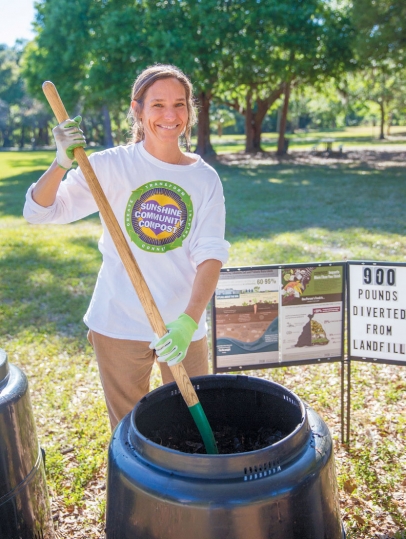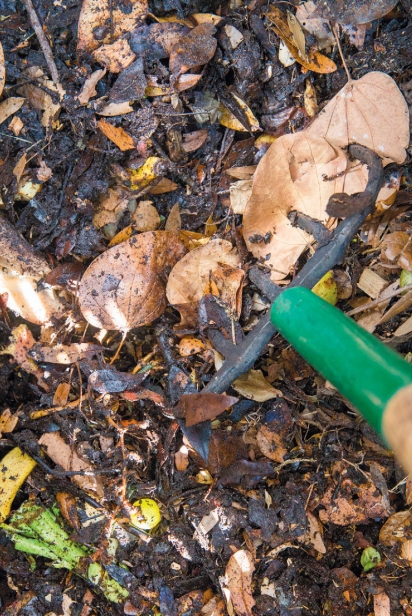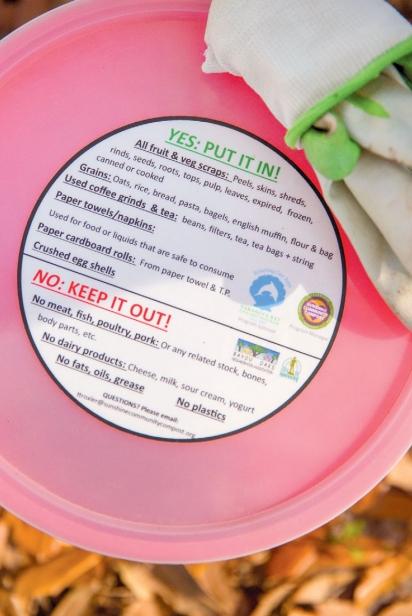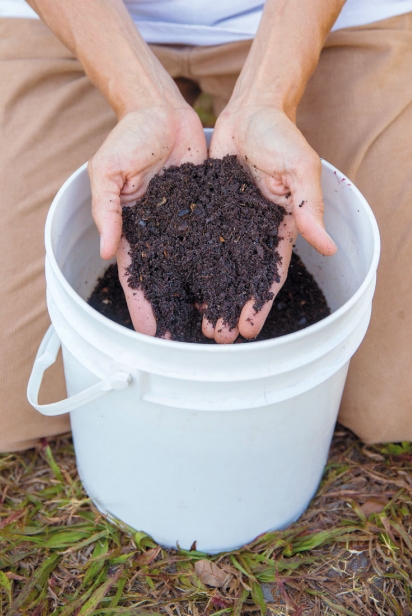Feeding the soil
Sunshine Community Compost
One local resident is leading the way to help save our ecosystem and bring neighborhoods together through the disposal of food scraps. Meet Tracie Troxler, who recently moved back to her hometown after living in California for several years. With an education and experience in occupational therapy, she was searching for the next chapter in her career and knew she had a mission, one to connect her to the environment and make a positive impact in this community.
During her time in California she had worked in the solar energy sector, but wanted to work “closer to earth” and trained in farming and gardening. It was there where an interest in composting piqued and she had an opportunity to be on the start-up team of a small compost nonprofit. The organization was run by well-educated and experienced individuals from whom she gained a wealth of knowledge.
“I wanted to take all the skills I have and bring them here,” Tracie says. “There’s a lot of work to be done right here.”
She is passionate about going into schools to teach students and families how to grow food through community gardens and work towards a zero-waste existence.
“Compost is part of that. The foundation of it all is the soil.”
The outer parts of fruit and vegetables that get thrown away are anything but trash; they are treasures. When composted, they nourish the soil that is used to grow food that is more nutrient-dense. The soil becomes alive and when it is enriched with repurposed food scraps, less fertilizer and pesticide (if any) are needed to grow our food. Compost holds five times its weight in water, cutting down on irrigation needs. Humans’ immunity systems and gut health also improve when food is grown in this living soil.
“We pay for a vegetable to nourish ourselves then we peel off nutrients and throw them away, never to recover. These food scraps re-nourish the food we grow.”
Tracie’s efforts to bring composting here began with pilot programs in which people volunteered space in their backyards to house the compost bins. Buckets were distributed to nearby neighbors and Tracie would physically pick up the residents’ waste to be composted. The program gained momentum and soon the City of Sarasota got on board to support this initiative. The disposal grounds moved from individuals’ backyards to City Park, which served as the first community compost site.
Soon this alternative refuse program was presented to neighborhood homeowners’ associations (HOAs), the first being Gillespie Park, where residents were receptive to the initiative. Not long after, Tracie launched Sunshine Community Compost, a Florida-based 501(c)(3) nonprofit, whose mission is to recover resources, build communities, and give back to planet.
The residents receive a thorough training and a step-by-step explanation of how the process works. Tracie describes the finished compost as “beautiful with a pleasant, earthy smell.” It’s distributed for the residents to use in their own gardens, for landscaping, and to fortify a beautiful butterfly garden at the park. People can see firsthand that their efforts are significant to the community.
“We get so much from the planet and there needs to be reciprocity. We need to give a little back to the earth.”
Education is an integral part of the process. With proper education people can learn to compost in their own yards. If space does not permit, this is where the community composts offer a brilliant solution especially for more populated areas. As the city grows denser and vertically, there is a lot of opportunity for growth.
There are three compost sites in the city: Gillespie Park, Bayou Oaks, and Arlington Park. School programs are in place at Anna Maria Elementary and the Visible Men Academy.
“Kids are going to move the movement. They are our leaders, our compost champions.”
She’s making it easy to participate in this invaluable practice that gives so much to the environment and to us through our food system.
A first-ever in Florida Compost-a-Thon is taking place in recognition of International Compost Awareness Week (ICAW). Participants are invited to collect food scraps for one week during May 6–12, 2018. It’s free to register and more information may be found on their website.
Tracie’s goals for this year include creating capacity for more community compost. Sponsorships from larger area companies could help to keep this initiative flourishing. She humbly takes no credit for leading this movement and says, “It’s the people that show up that make the difference.”








